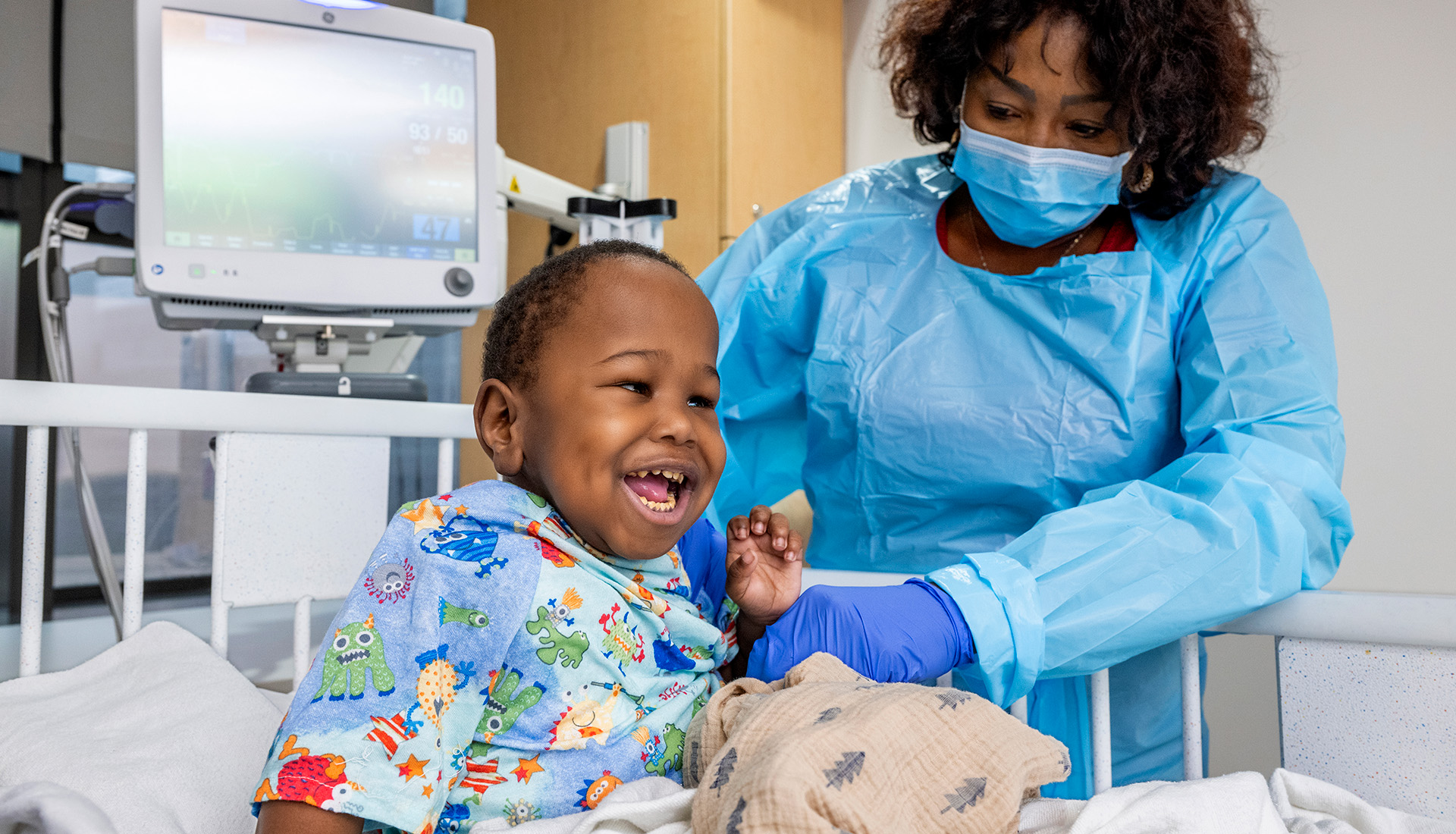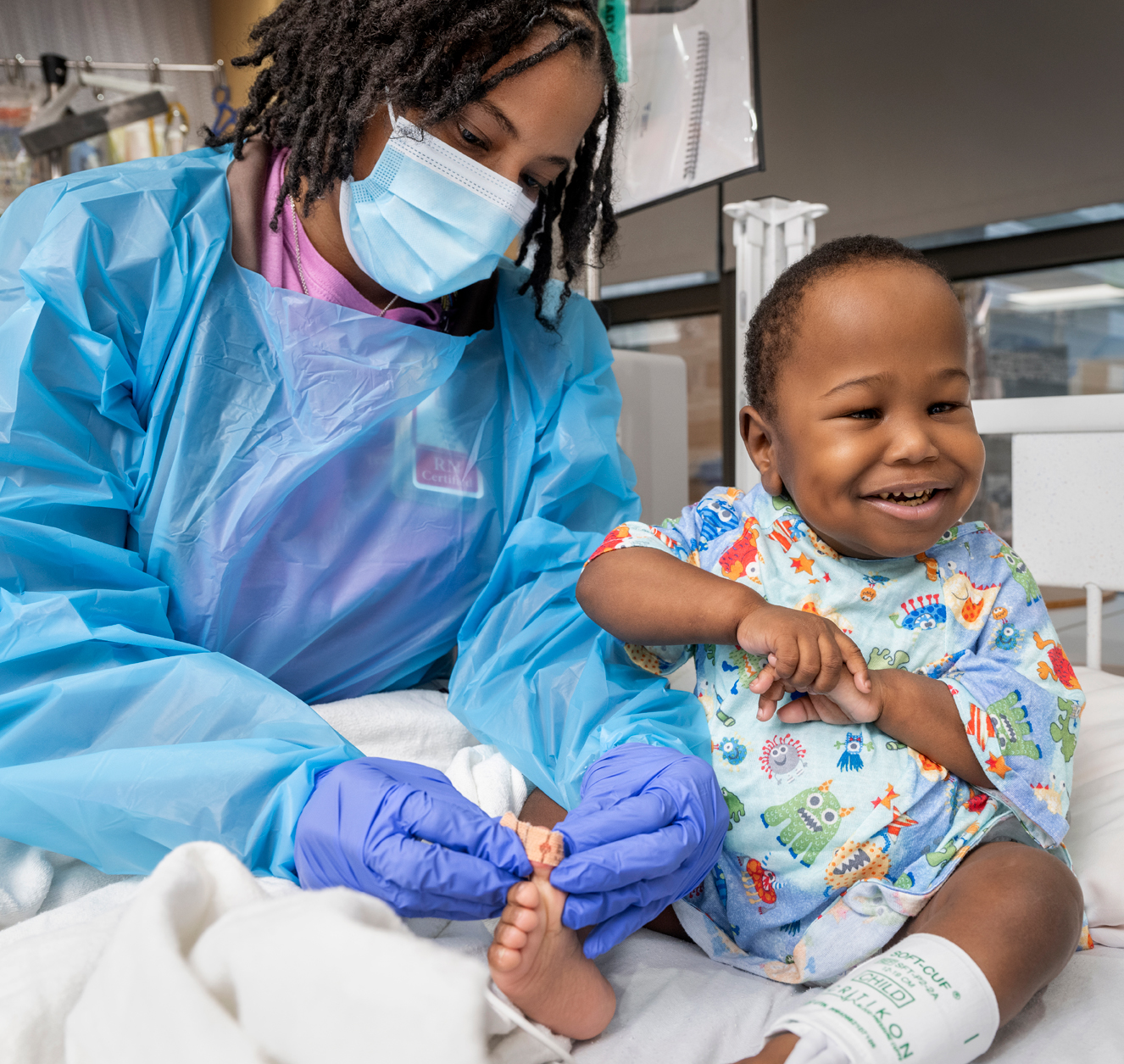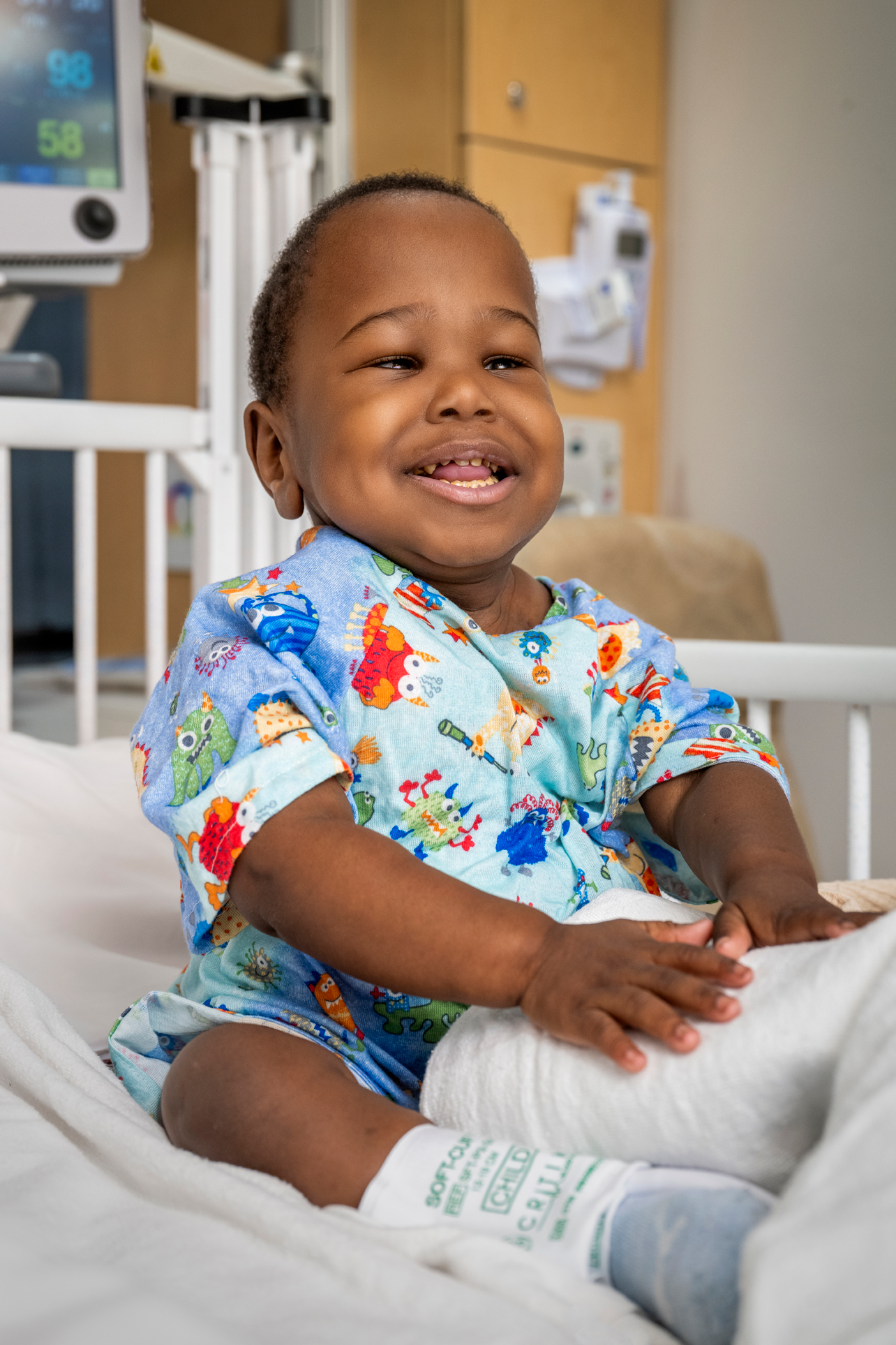

Three-year-old Grant Powell does not like to be still in his crib. Except for the catheter that connects him to a hemodialysis machine, it’s hard to imagine the energetic toddler spent his first year of in a neonatal intensive care unit (NICU).
Texas Children’s pediatric nephrology (kidney/renal) and neonatology programs are ranked among the best in the nation among children’s hospitals for 2024-2025 by U.S. News & World Report. At #1 in the country, the Nephrology Service is one of the largest programs in the world and is a national leader in renal replacement therapy for critically ill children with acute kidney failure.
Neonatology, ranked #3 in the country, is internationally known for its outstanding care of premature and critically ill infants and promotion of family bonding. Texas Children’s NICUs are state of the art and include a level IV NICU — providing the highest level of support for babies with the most serious and complex newborn medical and surgical conditions.
Implementing CARPEDIEM™ therapy at Texas Children’s required coordinated education and collaboration among many specialists, ranging neonatologists and nephrologists to dietitians and ethicists.
“Everyone’s effort, input and participation is crucial,” said Ganga Gokulakrishnan, MD, Attending Neonatologist at Texas Children’s and Associate Professor of Pediatrics-Newborn at Baylor. “We established period meetings for NICU and renal team members to come together to educate, inform and learn from each other, enhancing our collective ability to provide the best care possible.”
Born two months prematurely during the COVID-19 pandemic in early 2021, Grant weighed slightly more than a pound at birth, and he had kidney failure, also known as acute kidney injury (AKI). The mortality rate for newborns with this condition is reported to be as high as 60%, according to Pediatric Research.
The hospital where Grant was born did not have a kidney specialist on staff, so he was transferred to the NICU at Texas Children’s Hospital. Typical of very low birth weight infants, Grant’s complications continued, including breathing difficulties, brain bleeds and even a heart defect that doctors repaired.
“It looked very bad for Grant,” his mother, Doris Williams said. “But his medical team didn’t give up.”
Instead, doctors advised her that a new technology developed in Europe, CARPEDIEM™ therapy, was Grant’s best chance at life.
“And I said, ‘Let’s do it,’” Williams recalled.
CARPEDIEM™ (Latin for “seize the day”) is an acronym for cardio-renal pediatric dialysis emergency machine, a continuous renal replacement therapy used to treat neonates and small infants with kidney failure.
The technology was approved for use in the United States in April 2020. Later that year, Texas Children’s acquired two machines, becoming one of the first hospitals in the country to employ this state-of-the-art technology in patient care. In the summer of 2021, Grant became one of the first patients at Texas Children’s to benefit from CARPEDIEM™.
“Many of the devices we have used to care for children with renal failure were developed for adult patients,” explained Michael C. Braun, MD, Chief of Renal Services at Texas Children’s and Professor and Chief of the Division of Pediatric Nephrology. “We have translated these devices into care for children, but that becomes increasingly challenging from a technical standpoint when you're taking a device that's designed for an average adult, who may be 150 pounds, and applying it to a child — a newborn who may weigh only four pounds.”

“CARPEDIEM™ was specifically designed for a needy and highly vulnerable patient population,” Dr. Braun added. “It's transformed our ability to provide care for infants who are critically ill.”
Compared to an adult dialysis machine, CARPEDIEM™:
It works slowly to ensure the baby’s safety, running about 23 hours daily.
“This technology gives an opportunity for improved survival for babies with kidney failure,” said Kristina Reber, MD, Chief of Neonatology at Texas Children’s and Professor and Newborn Division Chief in the Department of Pediatrics at Baylor. “We are fortunate to have a collaboration of world experts at Texas Children’s that allows us to optimize outcomes for these babies.”
When Grant was about seven months old, he transitioned from the CARPEDIEM™ to regular hemodialysis but had to remain in the NICU, where neonatologists took care of his other medical issues. The hemodialysis lasted about four hours per day. His mother and grandmother took turns staying with him in the NICU, often reading to him so he would know he was not alone. Grant’s father also visited as COVID restrictions allowed.
Ultimately, the goal for babies like Grant is to transition to at-home dialysis called peritoneal dialysis. Parents are taught to administer the procedure, which is very developmentally friendly and allows the baby to grow at home in a nurturing, loving environment. With peritoneal dialysis, parents connect the baby to the dialysis machine at night, and it works while everyone sleeps.
“We secure their catheters very carefully under onesies,” said Catherine Joseph, MD, CARPEDIEM™ Nephrology Lead in Texas Children’s NICU and Associate Professor of Pediatrics, Division of Pediatric Nephrology at Baylor. “They can do all the baby things, going on to crawling and running around.”

Once discharged, Texas Children’s nephrologists follow patients on an outpatient basis at the hospital’s Renal Services Clinic. There, patients benefit from a holistic approach that includes nephrology and general pediatric care until they eventually transition to adult providers.
Despite having access to the latest, highest-quality care, patients like Grant face many ongoing challenges. Grant’s battle has included repeated infections, surgical procedures, dialysis complications and frequent hemodialysis treatments. Regardless of the tough moments, Grant’s mom says she is grateful that the Texas Children’s team never gives up and continues to do their absolute best for her son.
“We bring our A-game to our patients every single time,” Dr. Joseph said. “But if there is an A-plus game, we’re open to that idea. Everybody’s opinion, innovation, contribution and tireless work make our team excellent, which translates into wonderful results for our patients.”
Grant is now on the waitlist for a kidney transplant. Though he is small for his age and developmentally delayed, his mother says he is fighting to catch up. CARPEDIEM™ has allowed him to keep fighting his battle, and his team plans to do all they can to help him win.
“The goal with these babies who have irreversible kidney failure is to use the machine to bridge them to the point that they can be discharged from the hospital on outpatient dialysis therapy,” Dr. Braun said. “Then allow them to grow to the point that they are big enough to get a kidney transplant.”
Grant has met that goal. As he waits for a matching kidney to become available, he continues to show strength, resilience and hope, supported by his dedicated medical team and loving family.